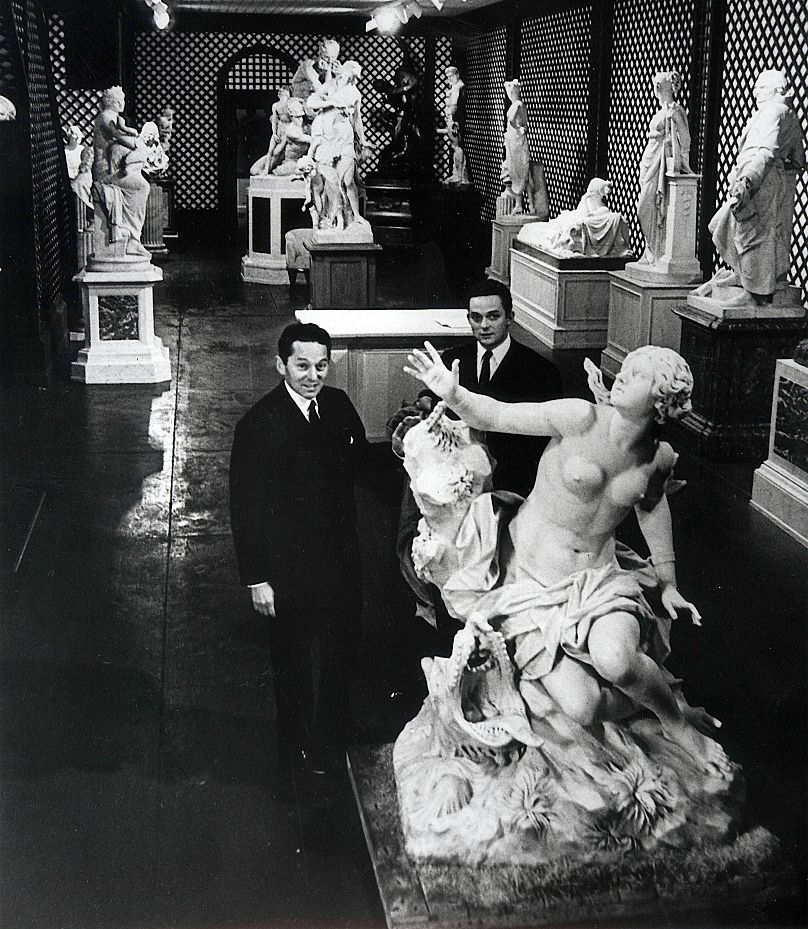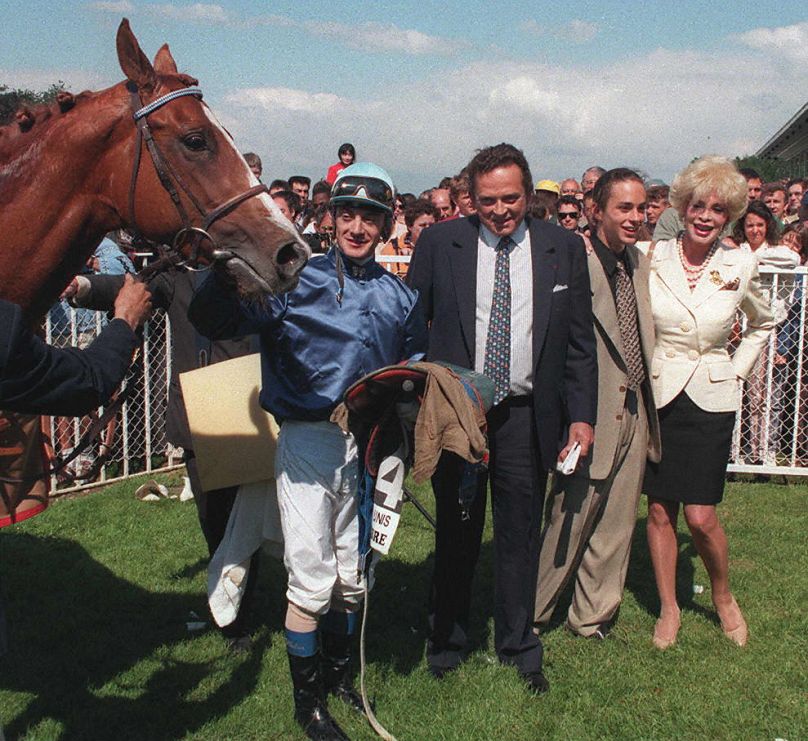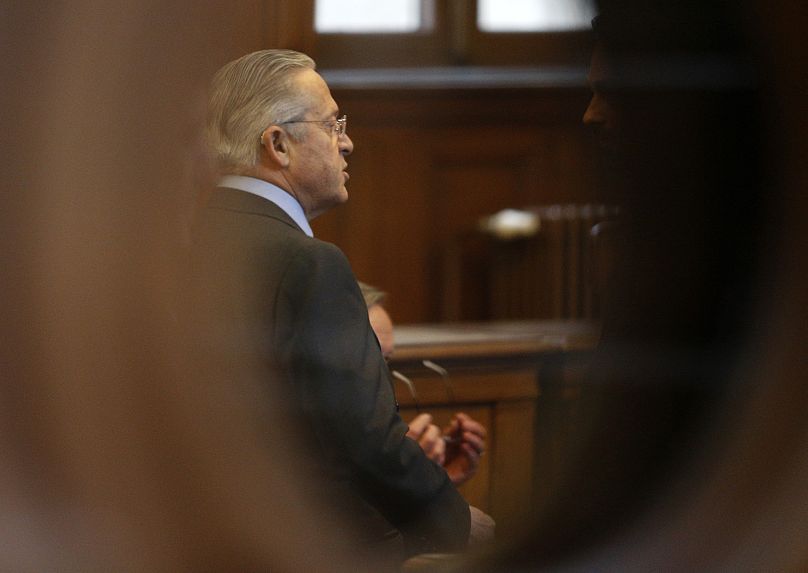Fifth-generation art collector Guy Wildenstein is back before a French court this week. Here’s how one of the world’s most powerful art dynasties got embroiled in a multigenerational tax fraud case.
French art dealer Guy Wildenstein - who has been at the helm of one of the world’s most powerful art families since his father died in 2001 - is back in court in Paris this week to battle accusations of massive tax fraud and money laundering.
It’s the third time French prosecutors have gone after the family, accusing them of organising “the longest and the most sophisticated tax fraud” in modern French history. If found guilty, they would have to pay up to €1 billion in back taxes and fines.
The trial opened on 18 September and is expected to last until 4 October. Wildenstein’s co-defendants include family lawyers, asset managers, a notary, his nephew and former sister-in-law.
New to the story? Euronews Culture has answers to your burning questions.
Who are the Wildensteins?
The Wildensteins, often referred to in French media simply as “Les W,” are a family of French-American art collectors spanning five generations and 150 years.
Their collection is estimated to be worth billions and has been known to include works by some of the biggest artists in history, like Caravaggio, Picasso, Monet and Rembrandt. The pieces are scattered across the globe - in nuclear bunkers, free ports, safes and on loan at several public museums.
They also operate Wildenstein & Co. galleries in New York and Tokyo and have real estate assets around the world. The patriarch of the family, Daniel Wildenstein, was notoriously secretive about the family’s fortune - his death in 2001 marked the start of their legal troubles.
On top of tax fraud and money laundering, the Wildensteins have also been under investigation for possession of stolen art, after French authorities raided their art research centre in Paris in 2011 and seized some 30 works that were reported stolen or missing.
What are the charges against them?
The Wildensteins - or more specifically Daniel Wildenstein’s children Guy and Alec - are accused of underreporting their assets to avoid inheritance taxes in the wake of the patriarch’s death in 2001. Guy was accused a second time after Alec’s death in 2008.
In 2001, Guy and Alec reported that their father’s estate at the time of his death was worth just €41 million – failing to mention the family’s compounds in the Caribbean and Kenya, along with scores of priceless artworks.
Their family secrets were laid bare after the brothers stiffed their father’s widow, former model Sylvia Wildenstein, of her share of Daniel’s estate. Sylvia said she signed away her inheritance under false pretences after Guy and Alec told her that Daniel died in financial ruin.
She and her lawyer fought until Sylvia’s death in 2010 to get her money (and beloved racehorses) back, unearthing the family’s tangled web of trust funds, shell corporations and undeclared artwork in the process.
Today, the French government is using evidence from Sylvia’s case to claim that the family’s trust funds are illegal - and that they must pay back taxes on those assets as well as a criminal fine and a potential jail sentence.
What happened in the previous trials?
In the Wildensteins’ last trial, prosecutors sought €616 million in back taxes and a €250 million fine, as well as jail time for Guy.
Guy was acquitted twice in suits that took place in 2017 and 2018. The court’s decision hinged on the fact that there was no law at the time of the alleged crime obliging Guy to declare assets held in foreign trusts.
But the judge in the last trial specified that the family’s financial situation showed a “will to dissimulate,” and a “clear attempt to avoid” paying taxes. In the end, it came down to cracks in the prosecution’s case and loopholes in France’s tax fraud laws.
It wasn’t until 2011 that France passed a law requiring that assets held in foreign trusts be declared, years after both Daniel and Alec died. The court said the new law couldn’t be applied retroactively.
Why is this new trial taking place now?
This time around, prosecutors are focused on whether the trusts were actually independently run, or whether 77-year-old Guy Wildenstein was secretly pulling the strings from behind the scenes.
In France, in order for the assets held in a trust to be tax-exempt, the trust must be “irrevocable,” meaning the beneficiary can have no say in the way it’s operated. Guy is accused of personally directing the trust’s managers to carry out his will, a violation of the special tax status.
In court on Monday, Guy rejected the accusation, saying he had no knowledge of his family’s trust system before his father’s death.
“Until 2001, I wasn’t aware of anything,” he told the court. “The trust does not belong to me.”














